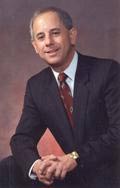
|
Seek Wisdom and Advice From Sages By Christos Papoutsy
|
Changes and clarifications of the legal definition of a company have accompanied these recent emphases on human capital. Once only a structure for producing profits, a company is now viewed legally as a person, completely authorized to act with the rights and liabilities of a person. But with increasing public attention upon the human capital of companies, a fuller definition of the corporation developed for use in the business world, incorporating elements from legal and ethical views to guide the performance of modern businesses. The corporation as a person, acting in concert with its human capital—its valued employees—requires guidance and advice in its successful performance, just as each of us would have need of it. The question arises, however, about the source of that advice. From whom or from what source should a person seek wisdom, advice and guidance as each relentlessly pursues his or her own self-interest? Aristotle, in his Nicomachean Ethics, has much to say on this topic. According to him, There is a science to wisdom, if we may interpret Aristotle's overall message liberally. And it is not just a question of skill or specialized knowledge, either. Character and morality enter into the recipe penned by Aristotle. For this same young man who is unqualified to attend lectures on statecraft because of his age, may also be disqualified for other reasons: "so long as he tends to be swayed by his feelings, he will listen vainly and without profit, for the purport of these [lectures] is not purely theoretical but practical. Nor does it make any difference whether his immaturity is a matter of years or character: the defect is not a matter of time, but consists in the fact that his life and a
How does this revelation by Aristotle apply to the corporation? Quite simply, it should seek advice from mentors, friends, and employees with wisdom and experience in a focused field, persons also of good character. The dangers of not following this sage advice are well-known, of course, with plenty of examples in current times. Executives of Enron, Worldcom, Arthur-Anderson, and many other corporations would have been well-advised to heed the words of Aristotle. It is an attractive notion, too, that Martha Stewart may have avoided incarceration simply by reading some of the Greek Loeb classical works with which she stocked family shelving. Aristotle has counseled countless readers for many centuries, his wisdom holding true today just as in past millennia. For a corporation cannot survive without constantly seeking out wisdom from "continent", morally-qualified, experienced persons of character, an outcome clearly understood from the earliest times of recorded history. Hesiod, a Greek poet of the 7th century B.C., summed up this notion succinctly of heeding good advice: "Best is he who makes his own discussion; good is he who listens to the wise; but he who, knowing not, rejects another's wisdom is a plain fool." For more information about Mr. Papoutsy, or to read other articles on corporate social responsibility or on the topics of the Horatio Alger Lecture Series, visit the Business Arena section of the Hellenic Communication Service website at http://www.HellenicComServe.com or the webpages of the Christos and Mary Papoutsy Distinguished Chair in Business Ethics at Southern New Hampshire University at http://www.snhu.edu. Mr. Papoutsy welcomes comments and may be reached via email at PapcoHolding@aol.com. |
|

